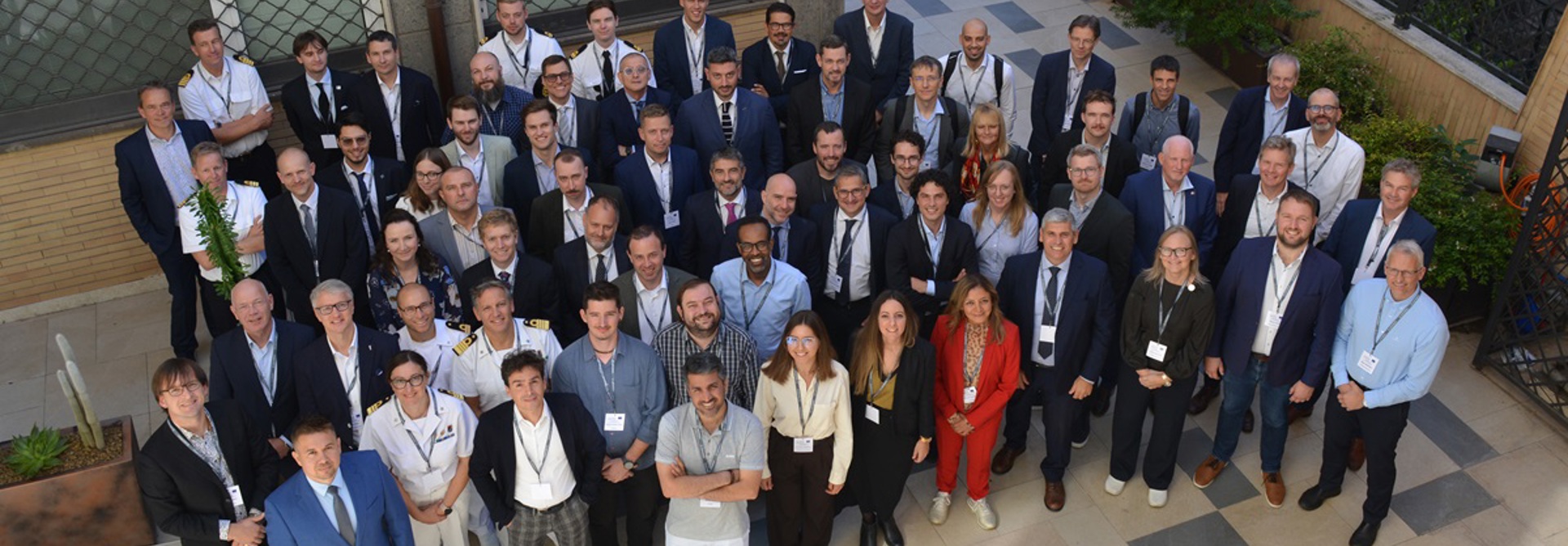EUROGUARD Partners align next steps at Rome Workshop
Partners in the EDF-funded EUROGUARD programme met in Rome from 7 to 9 October to consolidate progress and set the direction for the next phase of work on medium-sized semi-autonomous surface (MSAS) vessels. The workshop brought together more than 80 participants from 10 EU Member States, including representatives from industry and defence organisations.
The event combined technology updates with demonstrations of the Generic European Naval System Architecture (GENSA) and the Digital Ship Design Environment (DSDE), which are spearheaded by the Dutch partners. The GENSA and DSDE allow for a standardised and shortened identification, concept exploration and design process for future MSAS vessels. In addition to this a scenario-based wargaming session was delivered by Damen Naval’s RD&I Wargaming team. The session applied this methodology to support rapid concept exploration across operations, systems, and vessel configurations.
“The EUROGUARD project started in December 2023, and since then, much work has been done on the development of the technology, the prototype, and of course Damen Naval’s input, which is the GENSA,” says Marcel Elenbaas, project manager for the Dutch scope of EUROGUARD. “Because the topic of the project is new and involves rapidly developing technologies, these workshops are used to optimise the collaboration within the consortium and participating member states. The aim for this particular workshop was to define what’s next for the project – to set the scene going forward.”
Key questions addressed included:
- · How future uncrewed naval vessels will operate.
- · Which systems and system combinations are suitable.
- · Which maturing technologies are applicable.
- · Lessons from Ukraine on drones and from the Baltic Sea on subsea cables.
- · The potential for collaborative European operations in the Baltic, Mediterranean, and North Seas.
- · The scope for future cooperation projects.
The consortium reviewed the EUROGUARD prototype demonstration plan and defined operational scenarios through the wargaming to validate GENSA later in the project. The wargame also helped initiate discussion on topics relevant to developing both the MSAS and the GENSA, such as the questions above.
“The GENSA provides a framework and method to stimulate collaboration and innovation across the European defence industry and alignment on needs and operation between its member states,” said Koen Droste, technical lead for GENSA.“ This is to develop MSAS systems faster with a clear identification of where we should develop together within Europe to be able to achieve the larger goals vs where a member state or industry partner needs to innovate on its own to get it done quicker.”
The Damen Naval RD&I Wargaming team facilitated the scenario work. According to the team, the approach enables rapid and collaborative decision-making in multi-stakeholder settings, aligning with the benefits identified in NATO studies. This was put into practice by the role it played during the workshop.
Outcomes:
- Defined what’s next for the project.
- · Captured relevant operational scenarios and applicable technology during a wargame-based concept exploration.
- · Identified the scope for future cooperation projects.
- · Demonstrated how GENSA can contribute to points mentioned above.·
